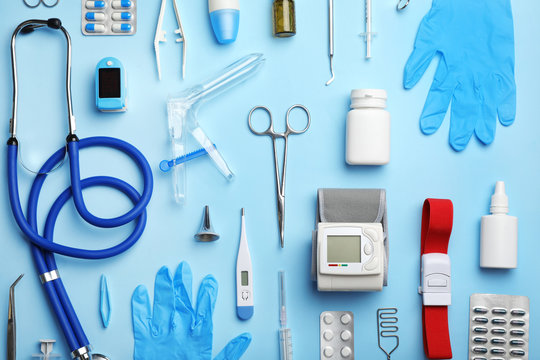
Albania, a country in Southeast Europe, has made significant strides in healthcare over the past few decades. As the healthcare system continues to evolve, the integration of advanced medical equipment has played a crucial role in improving patient care, diagnosis, and treatment outcomes. This article explores some of the best medical equipment available in Albania, highlighting how modern technology is transforming the healthcare landscape.
1. Diagnostic Imaging Equipment
Diagnostic imaging is a cornerstone of modern medicine, and Albania has embraced advanced imaging technologies to enhance diagnostic accuracy and patient care. Key equipment in this category includes:
- MRI Machines: Magnetic Resonance Imaging (MRI) machines provide detailed images of internal structures without the use of ionizing radiation. Leading hospitals in Albania, such as the American Hospital in Tirana, are equipped with state-of-the-art MRI machines that enable early and accurate diagnosis of various conditions, from neurological disorders to musculoskeletal injuries.
- CT Scanners: Computed Tomography (CT) scanners are essential for rapid and precise imaging, particularly in emergency situations. Facilities like Hygeia Hospital in Tirana offer advanced CT scanning services, which are crucial for detecting conditions such as strokes, tumors, and internal injuries.
- Ultrasound Machines: Ultrasound technology is widely used in Albania for diagnostic and therapeutic purposes, including obstetrics, cardiology, and urology. Modern ultrasound machines, available in many clinics and hospitals, provide high-resolution images and are indispensable in prenatal care and other medical fields.
2. Laboratory Equipment
Accurate and timely laboratory testing is vital for diagnosing diseases, monitoring treatment progress, and conducting research. Albania’s healthcare system has integrated advanced laboratory equipment to ensure high standards of medical testing. Notable equipment includes:
- Automated Analyzers: These machines streamline the process of blood and urine testing, providing quick and accurate results. Institutions like the QSUT (Mother Teresa University Hospital Center) in Tirana use automated analyzers to perform a wide range of tests, from basic blood counts to complex biochemical analyses.
- PCR Machines: Polymerase Chain Reaction (PCR) machines are crucial for detecting genetic material and are widely used in diagnosing infectious diseases, including COVID-19. Laboratories across Albania have adopted PCR technology to enhance their diagnostic capabilities.
- Microscopes: High-powered microscopes are essential for pathology and microbiology. Modern microscopes with digital imaging capabilities are used in many Albanian laboratories, aiding in the identification of cellular abnormalities and infectious agents.
3. Surgical Equipment
Advancements in surgical technology have revolutionized the way surgeries are performed, increasing precision and reducing recovery times. Albanian hospitals have incorporated cutting-edge surgical equipment to improve patient outcomes:
- Laparoscopic Surgery Instruments: Minimally invasive laparoscopic surgery is now common in Albania, thanks to sophisticated instruments that allow surgeons to perform complex procedures through small incisions. This technology reduces patient recovery time and minimizes surgical risks.
- Robotic Surgery Systems: Some leading hospitals, such as the American Hospital in Tirana, have introduced robotic surgery systems. These systems provide enhanced precision and control, allowing surgeons to perform intricate procedures with greater accuracy and fewer complications.
- Anesthesia Machines: Modern anesthesia machines equipped with advanced monitoring capabilities ensure patient safety during surgeries. These machines, available in major hospitals, provide precise control over anesthesia delivery and monitor vital signs in real-time.
4. Patient Monitoring Systems
Continuous monitoring of patients is essential in critical care settings. Albania has adopted advanced patient monitoring systems that provide real-time data on vital signs, enhancing the quality of care:
- ICU Monitors: Intensive Care Units (ICUs) in Albania are equipped with sophisticated monitors that track parameters such as heart rate, blood pressure, oxygen saturation, and respiratory rate. These systems enable healthcare professionals to respond promptly to any changes in a patient’s condition.
- Telemetry Systems: Wireless telemetry systems allow for continuous monitoring of patients, particularly those with cardiac conditions. These systems are used in various healthcare facilities to provide uninterrupted data on patient health, even as they move around the hospital.
5. Telemedicine Solutions
The COVID-19 pandemic accelerated the adoption of telemedicine worldwide, and Albania is no exception. Telemedicine platforms and equipment have enabled remote consultations, reducing the need for in-person visits and expanding access to healthcare:
- Video Conferencing Tools: Many healthcare providers in Albania now offer telemedicine services using video conferencing tools. These tools facilitate remote consultations, allowing patients to receive medical advice and follow-up care from the comfort of their homes.
- Digital Health Records: The integration of electronic health records (EHR) systems has streamlined the management of patient information. EHRs improve coordination among healthcare providers, reduce errors, and enhance the overall efficiency of healthcare delivery.
Conclusion
The adoption of advanced medical equipment in Albania has significantly improved the quality of healthcare services. From diagnostic imaging and laboratory equipment to surgical instruments and patient monitoring systems, modern technology is transforming the healthcare landscape. As Albania continues to invest in medical technology, the future looks promising for both patients and healthcare providers, paving the way for a healthier and more advanced society.
For more information visit Vitalb.


